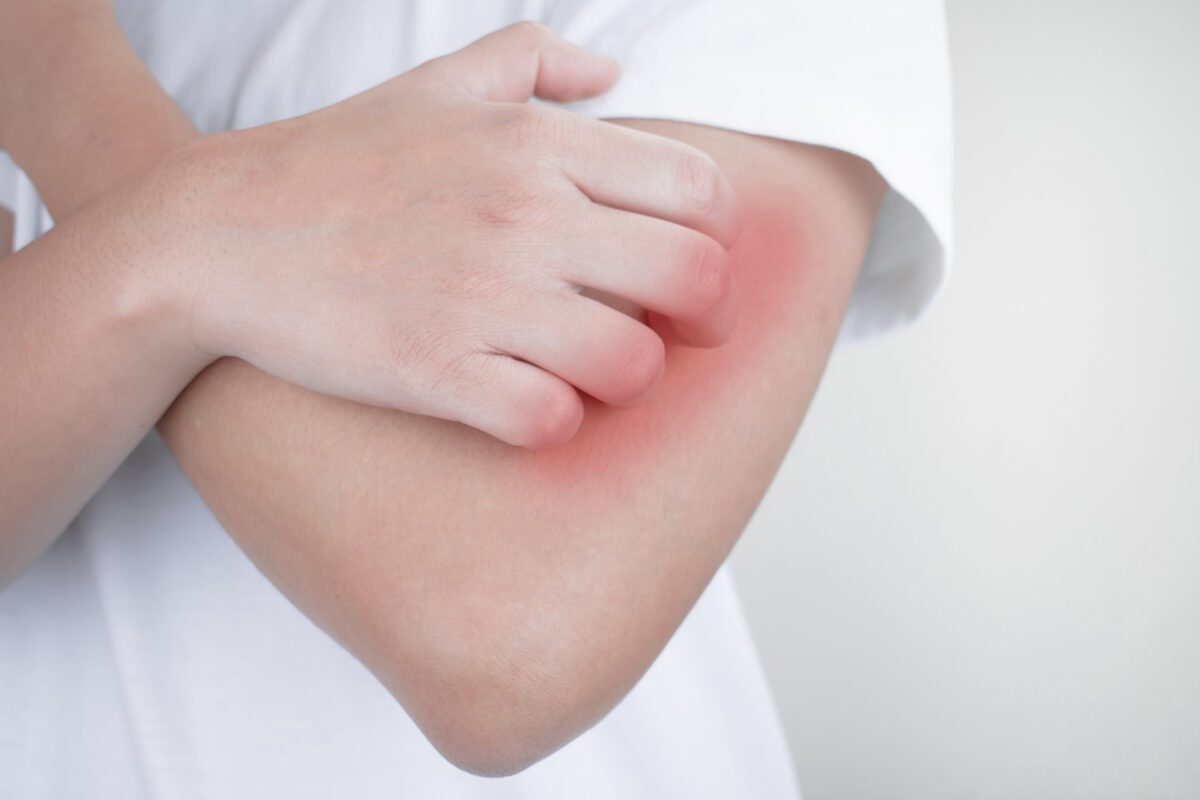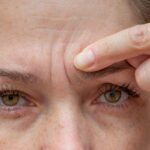How can diet and photobiomodulation help manage psoriasis?

Psoriasis is a chronic skin disease that causes red, scaly patches. Although the exact causes of psoriasis are not fully understood, a combination of genetic and environmental factors appears to play an important role in its onset. While managing psoriasis can be complex, a balanced diet and photobiomodulation sessions can improve symptoms.
The importance of diet in managing psoriasis
Adopting a healthy, balanced diet can have a positive impact on the well-being of psoriasis sufferers. Certain foods are known for their anti-inflammatory properties and can help reduce symptoms.
Anti-inflammatory foods
Certain food categories are beneficial for managing psoriasis symptoms thanks to their anti-inflammatory properties:
- Oily fish: salmon, mackerel and sardines are rich in omega-3 fatty acids, which help reduce inflammation in the body.
- Fruits and vegetables: berries, spinach, broccoli and oranges are rich in antioxidants and vitamins that improve skin health.
- Nuts and seeds: almonds, flaxseeds and walnuts are also good sources of omega-3 and can help improve overall skin health.
Avoiding food triggers
At the same time, you should avoid certain foods that can exacerbate psoriasis symptoms:
- Processed foods: industrial snacks, sweet drinks and fast food often contain additives and preservatives that can cause inflammation.
- Dairy products: some people find that dairy products increase inflammation and skin rashes.
- Alcohol: Alcohol can also aggravate psoriasis symptoms, and should be consumed in moderation or avoided altogether.
By adopting a healthy diet and avoiding inflammatory foods, it is possible to better manage psoriasis and improve well-being.
Photobiomodulation: an innovative approach to skin well-being
Photobiomodulation (PBM) is a non-invasive technique that uses light at specific wavelengths to stimulate cells and promote the body's natural healing process. The process uses LEDs and lasers to effectively target affected tissues.
How photobiomodulation helps manage psoriasis
Photobiomodulation has beneficial effects on the skin and can help manage psoriasis. Here's how this therapy can help:
- Reduced inflammation: photobiomodulation sessions reduce inflammation, which is important for psoriasis sufferers. Skin cells react positively to light, reducing redness and swelling.
- Stimulation of healing: by stimulating cells, photobiomodulation accelerates the healing process of psoriasis plaques. This can lead to a visible improvement in skin appearance.
- Improved blood circulation: PBM improves blood circulation, enabling better oxygenation of tissues and promoting cell regeneration.
Advantages of photobiomodulation
One of the main advantages of photobiomodulation is that it is non-invasive and painless. This makes it an attractive option for those seeking to improve their well-being without resorting to aggressive treatments.
Sessions are relatively short and can be easily integrated into a regular treatment routine.
Photobiomodulation as part of a care routine
To reap the many benefits of photobiomodulation, it's important to integrate it into an overall skin care routine.
Here are a few tips to improve the results of this technique on psoriasis:
- Frequency of sessions: regular photobiomodulation sessions are recommended. The ideal frequency may vary according to each individual's needs, and consulting a specialist can help determine the most effective plan.
- Moisturizing the skin: the use of suitable moisturizing products can reinforce the effects of photobiomodulation by keeping the skin supple and nourished.
- Combination with other treatments: photobiomodulation can be combined with other treatments for a holistic approach. For example, anti-inflammatory creams or therapeutic baths can be used.
The role of sport and a healthy lifestyle
In addition to diet and photobiomodulation sessions, psoriasis can be effectively managed through sport and a healthy lifestyle. Regular exercise helps improve blood circulation and reduce stress, two factors that can have a positive impact on skin health.
Recommended physical activities
Certain physical activities are particularly beneficial for psoriasis sufferers:
- Swimming: water can soothe the skin, and aquatic exercises are good for the joints.
- Yoga: yoga reduces stress, which can have a positive impact on psoriasis.
- Walking: a simple but effective activity for improving circulation and maintaining optimum fitness levels.
Health and well-being
To maintain a healthy lifestyle, we recommend :
- Improve sleep quality: adequate rest is beneficial for skin regeneration and reducing inflammation.
- Stress management: stress is a known trigger of psoriasis. Relaxation techniques such as meditation or deep breathing can help manage this inflammatory skin disease.
- Hydration: drinking enough water every day helps to keep skin hydrated and eliminate toxins from the body.





